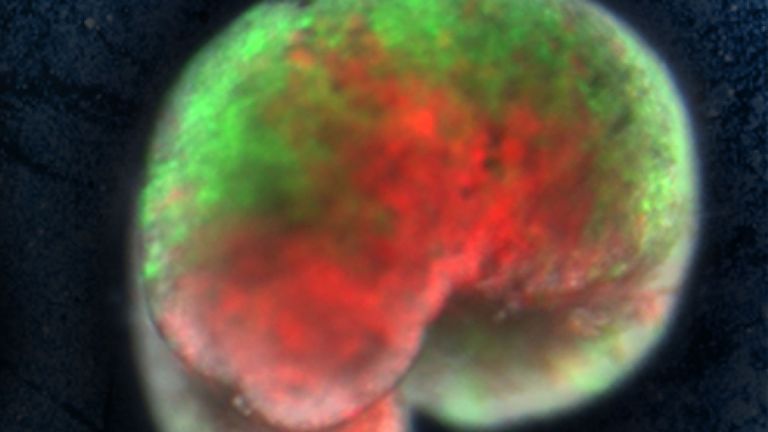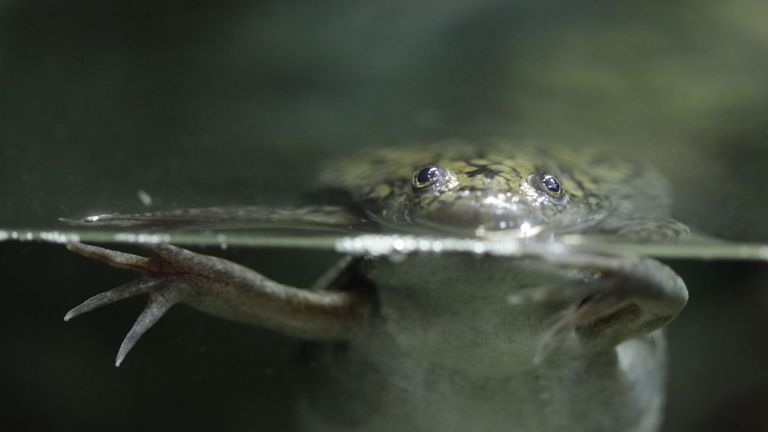Researchers have taken a major leap towards the realm of science fiction by creating what they claim are the world's first living robots.
Those concerned that the age of the Terminator may be upon us need not worry for now - the hybrids cooked up by scientists at the University of Vermont have been based on a type of African frog.
The "entirely new life forms", known as xenobots, have been made using stem cells from frog embryos and have been designed to one day be used in medicine and underwater research.

Image:The green shows frog skin and the red shows heart muscle cells. Pic: Sam Kriegman/Vermont Uni
It is hoped that the millimetre-wide bots could swim around human bodies to reach specific areas requiring medicine, and be used to gather microplastics in the ocean.
But one potential feature very befitting of a T-800 is their ability to self-heal, which the team in Vermont believes will develop thanks to their biological tissues.
Joshua Bongard, a computer scientist and robotics expert who co-led the breakthrough, explained: "These are novel living machines. They're neither a traditional robot nor a known species of animal.
"It's a new class of artefact: a living, programmable organism."
The design of the robo-creatures were finalised after an algorithm running on a supercomputer created thousands of different variants, before being assembled and tested by biologists at Tufts University in Massachusetts.
Michael Levin, who co-led the study at Tufts, said the bots were "100% frog DNA - but these are not frogs".

Image:The robots are based on the African clawed frog. File pic
Mr Levin added: "Then you ask, well, what else are these cells capable of building?
"As we've shown, these frog cells can be coaxed to make interesting living forms that are completely different from what their default anatomy would be."
The findings have been published in the journal Proceedings of the National Academy of Sciences.
The report says the bots are proof of a way to design "completely biological machines from the ground up".
 简体中文
简体中文

